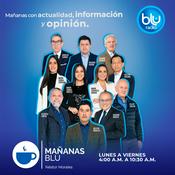359 episodios
- OnThe New Stack Agents, Gavriel Cohen discusses why he built NanoClaw, a minimalist alternative to OpenClaw, after discovering security and architectural flaws in the rapidly growing agentic framework. Cohen, co-founder of AI marketing agencyQwibit, had been running agents across operations, sales, and research usingClaude Code. When Clawdbot (laterOpenClaw) launched, it initially seemed ideal. But Cohen grew concerned after noticing questionable dependencies—including his own outdated GitHub package—excessive WhatsApp data storage, a massive AI-generated codebase nearing 400,000 lines, and a lack of OS-level isolation between agents.
In response, he createdNanoClawwith radical minimalism: only a few hundred core lines, minimal dependencies, and containerized agents. Built around Claude Code “skills,” NanoClaw enables modular, build-time integrations while keeping the runtime small enough to audit easily. Cohen argues AI changes coding norms—favoring duplication over DRY, relaxing strict file limits, and treating code as disposable. His goal is simple, secure infrastructure that enterprises can fully understand and trust.
Learn more from The New Stack about the latest around personal AI agents
Anthropic: You can still use your Claude accounts to run OpenClaw, NanoClaw and Co.
It took a researcher fewer than 2 hours to hijack OpenClaw
OpenClaw is being called a security “Dumpster fire,” but there is a way to stay safe
Join our community of newsletter subscribers to stay on top of the news and at the top of your game. The developer as conductor: Leading an orchestra of AI agents with the feature flag baton
19/2/2026 | 19 minA few weeks after Dynatrace acquired DevCycle, Michael Beemer and Andrew Norris discussed on The New Stack Makers podcast how feature flagging is becoming a critical safeguard in the AI era. By integrating DevCycle’s feature flagging into the Dynatrace observability platform, the combined solution delivers a “360-degree view” of software performance at the feature level. This closes a key visibility gap, enabling teams to see exactly how individual features affect systems in production.
As “agentic development” accelerates—where AI agents rapidly generate code—feature flags act as a safety net. They allow teams to test, control, and roll back AI-generated changes in live environments, keeping a human in the loop before full releases. This reduces risk while speeding enterprise adoption of AI tools. The discussion also highlighted support for the Cloud Native Computing Foundation’s OpenFeature standard to avoid vendor lock-in. Ultimately, developers are evolving into “conductors,” orchestrating AI agents with feature flags as their baton.
Learn more from The New Stack about the latest around AI enterprise development:
Why You Can't Build AI Without Progressive Delivery
Beyond automation: Dynatrace unveils agentic AI that fixes problems on its own
Join our community of newsletter subscribers to stay on top of the news and at the top of your game.The reason AI agents shouldn’t touch your source code — and what they should do instead
13/2/2026 | 22 minDynatrace is at a pivotal point, expanding beyond traditional observability into a platform designed for autonomous operations and security powered by agentic AI. In an interview on *The New Stack Makers*, recorded at the Dynatrace Perform conference, Chief Technology Strategist Alois Reitbauer discussed his vision for AI-managed production environments. The conversation followed Dynatrace’s acquisition of DevCycle, a feature-management platform. Reitbauer highlighted feature flags—long used in software development—as a critical safety mechanism in the age of agentic AI.
Rather than allowing AI agents to rewrite and deploy code, Dynatrace envisions them operating within guardrails by adjusting configuration settings through feature flags. This approach limits risk while enabling faster, automated decision-making. Customers, Reitbauer noted, are increasingly comfortable with AI handling defined tasks under constraints, but not with agents making sweeping, unsupervised changes. By combining AI with controlled configuration tools, Dynatrace aims to create a safer path toward truly autonomous operations.
Learn more from The New Stack about the latest in progressive delivery:
Why You Can’t Build AI Without Progressive Delivery
Continuous Delivery: Gold Standard for Software Development
Join our community of newsletter subscribers to stay on top of the news and at the top of your game.- Matan-Paul Shetrit, Director of Product Management at Writer, argues that people must take responsibility for how they use AI. If someone produces poor-quality output, he says, the blame lies with the user—not the tool. He believes many misunderstand AI’s role, confusing its ability to accelerate work with an abdication of accountability. Speaking on The New Stack Agents podcast, Shetrit emphasized that “we’re all becoming editors,” meaning professionals increasingly review and refine AI-generated content rather than create everything from scratch. However, ultimate responsibility remains human. If an AI-generated presentation contains errors, the presenter—not the AI—is accountable.
Shetrit also discussed the evolving AI landscape, contrasting massive general-purpose models from companies like OpenAI and Google with smaller, specialized models. At Writer, the focus is on enabling enterprise-scale AI adoption by reducing costs, improving accuracy, and increasing speed. He argues that bespoke, narrowly focused models tailored to specific use cases are essential for delivering reliable, cost-effective AI solutions at scale.
Learn more from The New Stack about the latest around enterprise development:
Why Pure AI Coding Won’t Work for Enterprise Software
How To Use Vibe Coding Safely in the Enterprise
Join our community of newsletter subscribers to stay on top of the news and at the top of your game. - AI coding assistants are boosting developer productivity, but most enterprises aren’t shipping software any faster. GitLab CEO Bill Staples says the reason is simple: coding was never the main bottleneck. After speaking with more than 60 customers, Staples found that developers spend only 10–20% of their time writing code. The remaining 80–90% is consumed by reviews, CI/CD pipelines, security scans, compliance checks, and deployment—areas that remain largely unautomated. Faster code generation only worsens downstream queues.
GitLab’s response is its newly GA’ed Duo Agent Platform, designed to automate the full software development lifecycle. The platform introduces “agent flows,” multi-step orchestrations that can take work from issue creation through merge requests, testing, and validation. Staples argues that context is the key differentiator. Unlike standalone coding tools that only see local code, GitLab’s all-in-one platform gives agents access to issues, epics, pipeline history, security data, and more through a unified knowledge graph.
Staples believes this platform approach, rather than fragmented point solutions, is what will finally unlock enterprise software delivery at scale.
Learn more from The New Stack about the latest around GitLab and AI:
GitLab Launches Its AI Agent Platform in Public Beta
GitLab’s Field CTO Predicts: When DevSecOps Meets AI
Join our community of newsletter subscribers to stay on top of the news and at the top of your game.
Más podcasts de Noticias
Podcasts a la moda de Noticias
Acerca de The New Stack Podcast
The New Stack Podcast is all about the developers, software engineers and operations people who build at-scale architectures that change the way we develop and deploy software.
For more content from The New Stack, subscribe on YouTube at: https://www.youtube.com/c/TheNewStack
Sitio web del podcastEscucha The New Stack Podcast, Huevos Revueltos con Política y muchos más podcasts de todo el mundo con la aplicación de radio.net

Descarga la app gratuita: radio.net
- Añadir radios y podcasts a favoritos
- Transmisión por Wi-Fi y Bluetooth
- Carplay & Android Auto compatible
- Muchas otras funciones de la app
Descarga la app gratuita: radio.net
- Añadir radios y podcasts a favoritos
- Transmisión por Wi-Fi y Bluetooth
- Carplay & Android Auto compatible
- Muchas otras funciones de la app


The New Stack Podcast
Escanea el código,
Descarga la app,
Escucha.
Descarga la app,
Escucha.







































